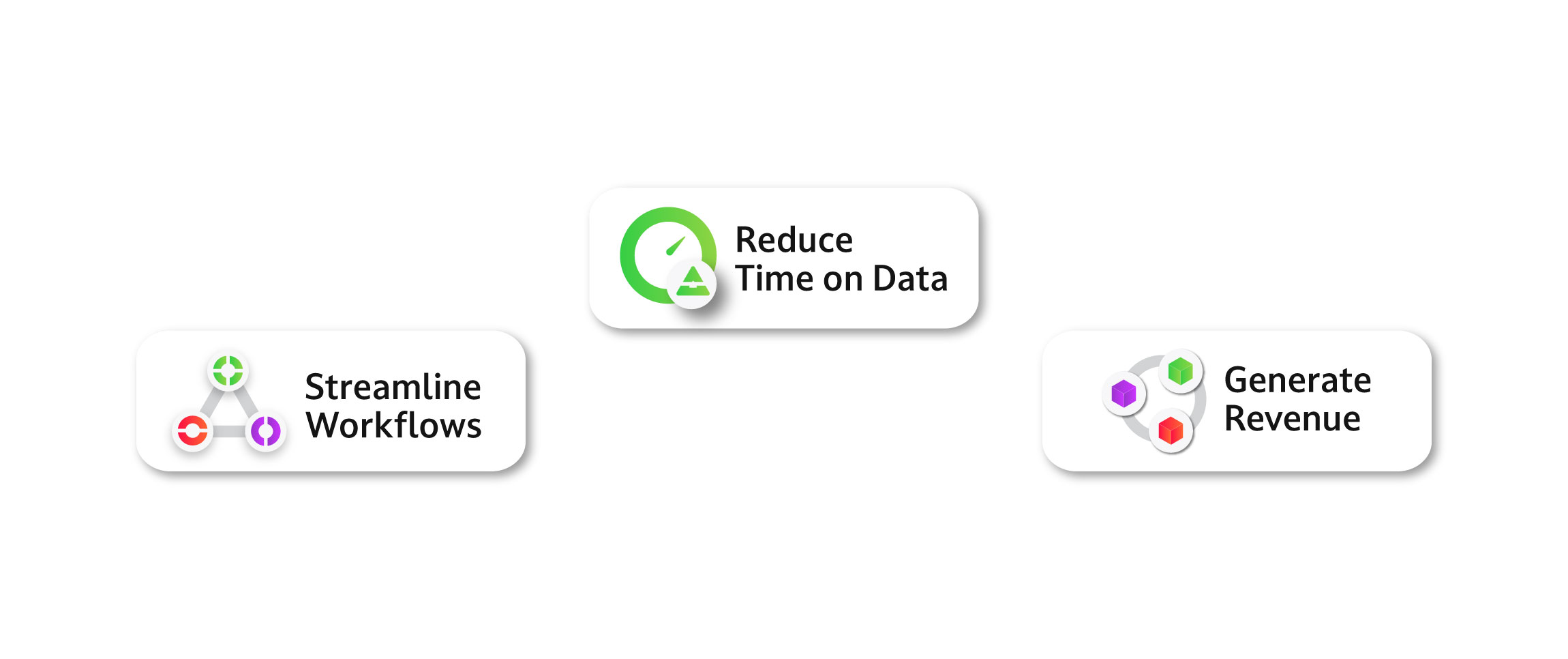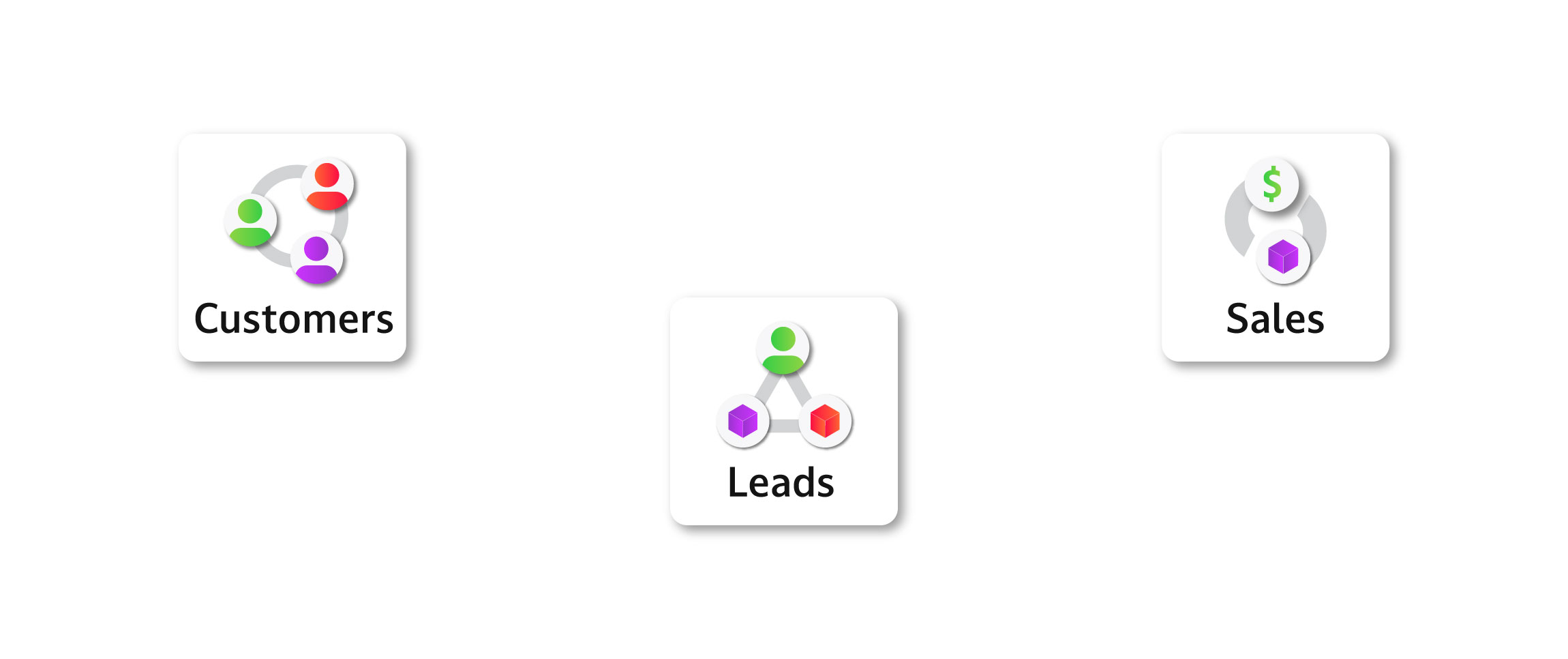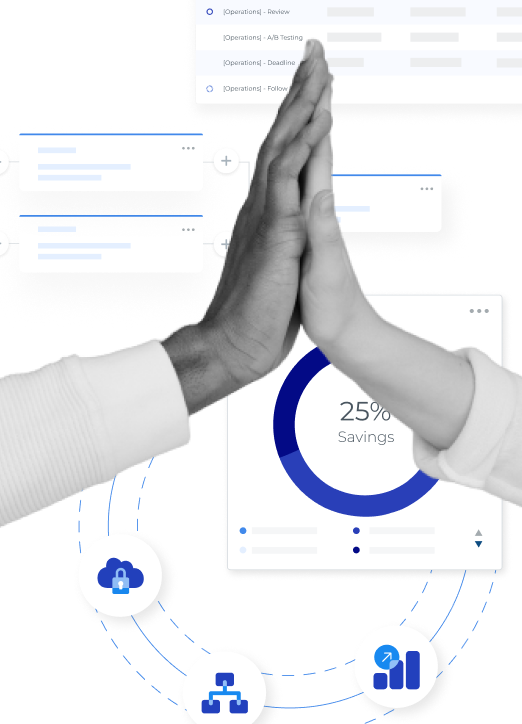Sales automation software has become essential to the success of sales teams across a wide range of industries. By automating various tasks, these tools help sales teams generate more leads, close more sales, and improve their overall efficiency.
In this article, we’ll explore how sales teams across most industries use automation to operate at scale.
Sales Workflow Automation
Sales automation software is designed to automate various tasks in the sales process. These tasks can include lead generation, lead management, email, sales forecasting, and account management. By automating these tasks, sales teams can streamline their workflows, reduce the time spent on manual data entry or email follow-ups, and focus on the most productive activities that can generate revenue.
One of the key benefits of sales automation tools is their ability to help sales teams generate more leads. In most industries, lead generation is a critical aspect of the sales process. With the help of software automation tools, sales teams can automate the process of finding new leads, qualifying them, and nurturing them until they are ready to make a purchase. This helps sales teams to focus their efforts on the most promising leads and reduce the time spent on those that are unlikely to convert.
Sales automation tools can also help sales teams close more deals. By automating the sales process, sales teams can ensure that every lead is followed up on and that no opportunity is missed. These tools can also help sales teams stay organized, track customer interactions, and identify the most effective sales tactics or ideal customers. With this information, they can tailor their approach to individual customers, increasing the likelihood of closing a sale.
Another benefit of sales automation tools is their ability to improve the efficiency of sales teams. These tools can automate repetitive tasks, such as data entry and follow-up emails. This not only makes the sales process more efficient but helps reduce the workload of sales teams, thus lessening the risk of burnout.
Sales Automation Tools: What Are the Key Differences?
There are many different types of sales automation tools available on the market today, each with unique features and benefits. Perhaps the most essential among them is customer relationship management (CRM) software. CRMs help sales teams manage prospect and customer relationships more effectively. They automate processes like email, track interactions, and provide insights into customer behavior and preferences that inform other departments pre- and post-sale.
CRMs often come with reporting features and business intelligence (BI) dashboards. These in-app tools help sales teams track their performance and identify areas for improvement. They provide real-time data on sales volumes, revenue, and customer behavior, making it easier for sales management to adjust their strategies and tactics as needed.
Many CRMs integrate with other sales enablement software, such as email marketing, social media, and project management tools. This makes it easy for sales teams to manage all aspects of the sales process from a single platform, eliminating the need for manual data entry and improving overall efficiency.
By streamlining the sales process, improving efficiency, and providing insights into customer behavior and preferences, software can help sales teams generate more leads and close more sales but most importantly work together more effectively, sharing information and collaborating as a team.
The Holy Grail of CRMs
As mentioned above, a CRM software is designed to help sales teams manage their interactions with customers, streamline sales processes, and improve overall efficiency. One of the key considerations when selecting a CRM is whether it is industry-specific or general-purpose.
An industry-specific CRM is tailored to the needs of a particular industry or vertical, such as healthcare, finance, or staffing. These CRMs are designed with specific features and functionality that are customized to the unique needs of the industry. For example, a healthcare CRM might include features for patient management, appointment scheduling, and insurance billing, while a finance CRM might include features for portfolio management, investment tracking, and compliance reporting.
One of the key benefits of an industry-specific CRM is that it can help businesses improve their efficiency and effectiveness in a particular industry. Having features and functionalities that are tailored to the specific needs of the industry, these CRMs can help businesses streamline their workflows, automate repetitive tasks, and focus on activities that generate revenue. This can lead to improved productivity, better customer service, and increased revenue for the business.
Another benefit of an industry-specific CRM is that it can help businesses comply with industry regulations and standards. Many industries have specific regulations and standards that businesses must comply with to operate legally and ethically. An industry-specific CRM can help businesses manage compliance requirements with features such as reporting, audit trails, and security controls. This can help businesses avoid fines, legal issues, and reputational damage.
Industry-tailored CRMs differentiate themselves from their competitors, helping businesses stay up-to-date with industry trends, best practices, and improvements, such as new regulations or emerging technologies like AI. This gives businesses a competitive advantage and helps them to stay ahead of the curve.
Another benefit of industry-specific CRMs is that they can help businesses better understand their customers. With features and functionalities that are tailored to the needs of the industry, these CRMs can help businesses capture and analyze data on customer behavior, preferences, and trends to make informed decisions about product development, marketing strategies, and customer service. By understanding their customers better, businesses can improve their customer experience and build stronger relationships with their customers.
In addition to selecting the right type of CRM, businesses must choose the right vendor and software solution. It’s important to work with a vendor that has experience in the industry and can provide the support and services needed to implement and maintain the CRM. It’s also important to select a software solution that’s user-friendly and customizable to the unique needs of the organization.
Remember: Data Fuels Everything
It’s important to recognize that a CRM is only as effective as the data entered into it. Businesses must ensure that they have the processes and protocols in place to capture accurate and complete data on their customers, leads, and sales activities. This requires a commitment to data quality and a culture of continuous improvement.
First and foremost, good data is important because it enables sales teams to make informed decisions. Sales teams heavily rely on data to identify trends and patterns in customer behavior, such as what products or services are popular, what sales channels are most effective, and what types of customers are most likely to make a purchase. By analyzing this data, sales teams can make informed decisions about which products to sell, which sales channels to focus on, and how to target their marketing efforts.
Good data is also important because it enables sales teams to generate more leads. One of the key benefits of sales process automation is that it helps sales teams identify and qualify leads more quickly and efficiently. However, for automation to be effective, it must be based on accurate and complete data, including data on customer behavior, sales history, and demographics. With accurate and complete data is accurate and complete, sales teams can use automation to generate more leads and improve their overall efficiency.
Another important reason why good data is essential to sales process automation is that it helps ensure that the automation is accurate and reliable. Sales process automation involves using technology to automate repetitive tasks, such as lead qualification and follow-up. However, if the data used to automate these tasks is incomplete or inaccurate, it can lead to errors and inconsistencies in the sales process, which can result in lost sales, customer dissatisfaction, damage to domain reputation, and loss of trust in the sales process.
Good data is also important because it enables sales teams to personalize their approach to each customer by identifying their needs and preferences. However, to do this effectively, the data must be accurate and complete, including data on the customer’s history with the business, their purchase behavior, and their preferences. By using good data to personalize their approach, sales teams can build stronger relationships with their customers and improve their chances of making a sale.
Finally, good data is important because it helps sales teams measure and track their performance. Sales teams use data to track their progress toward sales goals, identify areas for improvement, and measure the effectiveness of their sales processes. By ensuring that the data is accurate and complete, sales teams can make informed decisions about how to improve their performance and achieve their goals.
Good data is essential to sales teams and sales process automation. It enables sales teams to make informed decisions, generate more leads, personalize their approach to each customer, ensure that the automation is accurate and reliable, and measure and track their performance. By ensuring that the data is accurate and complete, sales teams can improve their sales processes and achieve their goals more effectively.
Augmenting Your Sales Team Using Automation Tools
The use of software automation tools such as CRMs has become increasingly common across a variety of industries. Industry-specific CRMs can be particularly useful for businesses that want to streamline their workflows, comply with industry regulations, stay competitive, and better understand their customers.
By selecting the right vendor and software solution and committing to data quality, businesses can realize the benefits of a CRM and improve their sales processes to generate more leads and close more sales. Sales automation tools have become a key part of the modern sales process and are likely to become even more critical as technology continues to evolve and customer behavior changes.
As you navigate the landscape of software to power your sales, we are here to help. At Kizen, we are committed to giving you the full picture and guiding you in the right direction. Get in touch with us through our website and we’ll make sure you have all the information you need to make the right software decision.










